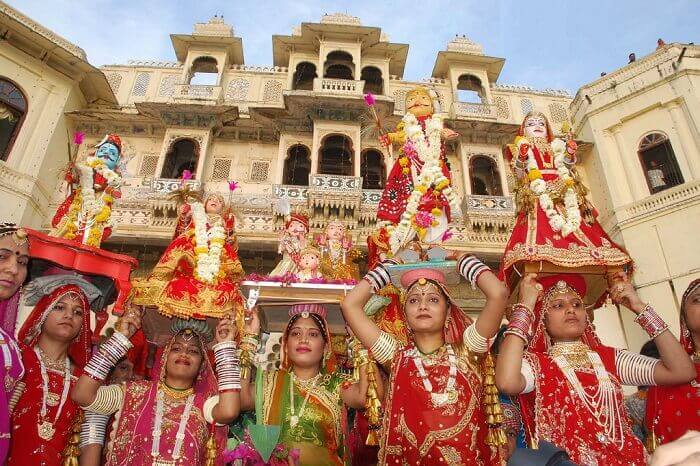Public Distribution System (PDS) is a national food security system established by the Government of India under the Ministry of food Consumer Affairs managed jointly with state governments in India. The primary objective of PDS is to attain national food security.
Before 1992, PDS was a general system of distribution with equal entitlement for all consumers. However, in 1992, Revamped Public Distribution System which was converted to Targeted Public Distribution System and since then PDS distributes subsidized food and non-food items to only specific segments of population, viz:
- Below Poverty Line (BPL),
- State-BPL,
- Antyodaya Anna Yojna,
- Annapurna
- Above Poverty Line (APL) Consumers.
The National Food Security Act (NFSA), enacted three years ago, with an aim to complete the process of PDS reform and ensure a modicum of food security for everyone. Under the NFSA, the APL category is abolished and eligible households come under two well defined categories:
- Priority households, entitled to 5 kg of foodgrains per person per month at nominal prices, and
- Antyodaya households (the poorest), entitled to 35 kg per household per month.
The PDS is to cover at least 75 per cent of rural households at the national level,rising to 80-90 per cent in the poorest States.
With a network of more than 400,000 Fair Price Shops (FPS), the Public Distribution System (PDS) in India is perhaps the largest distribution machinery of its type in the world.
How PDS System Functions:
- In First Step, Union (Central) Government through Food Corporation of India (FCI) purchases food grains on Minimum Selling Price (MSP) from farmers in mandis across the country. FCI then stores this food grains in their godowns.
- Second Step: The state government identifies BPL and AAY population as per the estimation fixed by the Planning Commission. The identified groups receive ration cards according to their entitlements.
- Third Step: The state Government opens Fair Price Shops (FPS) for distribution of these food supplies to targeted population.
- Fourth: The State Government receives food grain supplies from FCI and it distributes the same to targeted population.
In a recent initiative, Union Government has given up the task of procurement, storage & transportation to state government itself and Union Government directly gives Food Subsidy amount to the state government and the complete process is taken care by State Government.
Rajasthan Public Distribution System: New Initiatives:
Rajasthan Government has taken number of new initiatives to remove corruption, improve the efficiency, deliver highner number of products through PDS system. These initiatives include:
- Distribution of both PDS and non-PDS items
- Aadhar based identification of beneficiary
- PPP in Public Distribution System – Annapurna Bhandar Yojana
Distribution of both PDS & Non-PDS items through FPS:
While FPS shops take care of distribution of subsidized PDS items – White, Rice, Levy Sugar, fortified Atta & Kerosene Oil. It is also engaged in distribution of non-PDS (non-subsidized) items of daily use for common man. As per guidelines of Government of Rajasthan and Civil Supplies Corporation is currently taking care of distribution of Non-PDS items like Tea and Iodized Wash Salt. The Corporation is providing the above mentioned items with its own brand name – RAJ.
Aadhar based identification of beneficiary
To curb out corruption and leakages, Rajasthan Government has initiated the transition from the older ration card-based system to the one based on biometric identification using Aadhaar. Under this, electronic “Point of Sale”(PoS) machines have been installed at PDS shops, and the beneficiaries receive entitlements only after verifying through biometric finger print against the Aadhaar database over the Internet. The moving of social security schemes online is being done through an umbrella card called “Bhamashah”, which uses the Aadhar database.
PPP model for Public Distribution System
Rajasthan Government introduced public private partnership (PPP) in Public Distribution System (PDS) through Annapurna Bhandar Yojana. The government signed MOU with the Future Group to sell multi-brand consumer goods through the ration shops. In the first phase, the scheme was implemented through 5,000 ration shops.
Positive Outcomes:
 Annapurana stores have been proclaimed has Rural Malls where benefits of modern retail have been extended to the people of the state through PDS shops. These fair price shops will now get branded consumer products from the Future Group’s portfolio, over and above the grains, vegetables, sugar, and so on, already available at the PDS outlets.
Annapurana stores have been proclaimed has Rural Malls where benefits of modern retail have been extended to the people of the state through PDS shops. These fair price shops will now get branded consumer products from the Future Group’s portfolio, over and above the grains, vegetables, sugar, and so on, already available at the PDS outlets.
- The scheme has been an entrepreneurship drive with 5,000 FPS dealers turning into entrepreneurs with Annapurna Bhandar. It has increased dealers sales and allowed them to operate profitably.
Important Articles on PDS in Rajasthan:
- The Hindu: Dark Clouds over PDS system
- Justice Wardha Committee Report on PDS in Rajasthan: Download
Questions:
- Comment on role of technology in improving delivery of Public Servcies like Public Distribution System?
————– Thanks to Pulkit Gupta for the contribution

